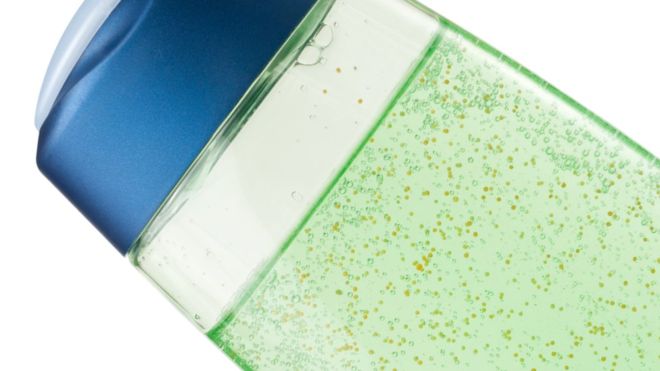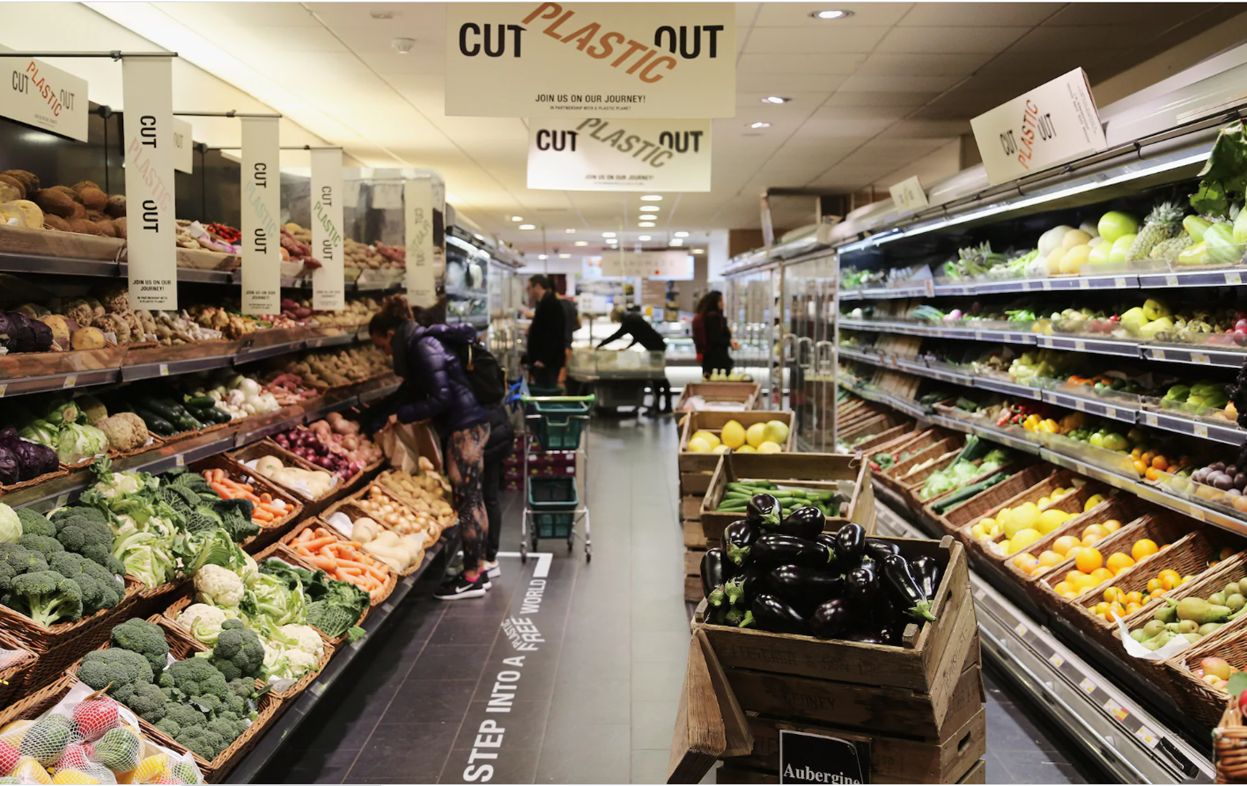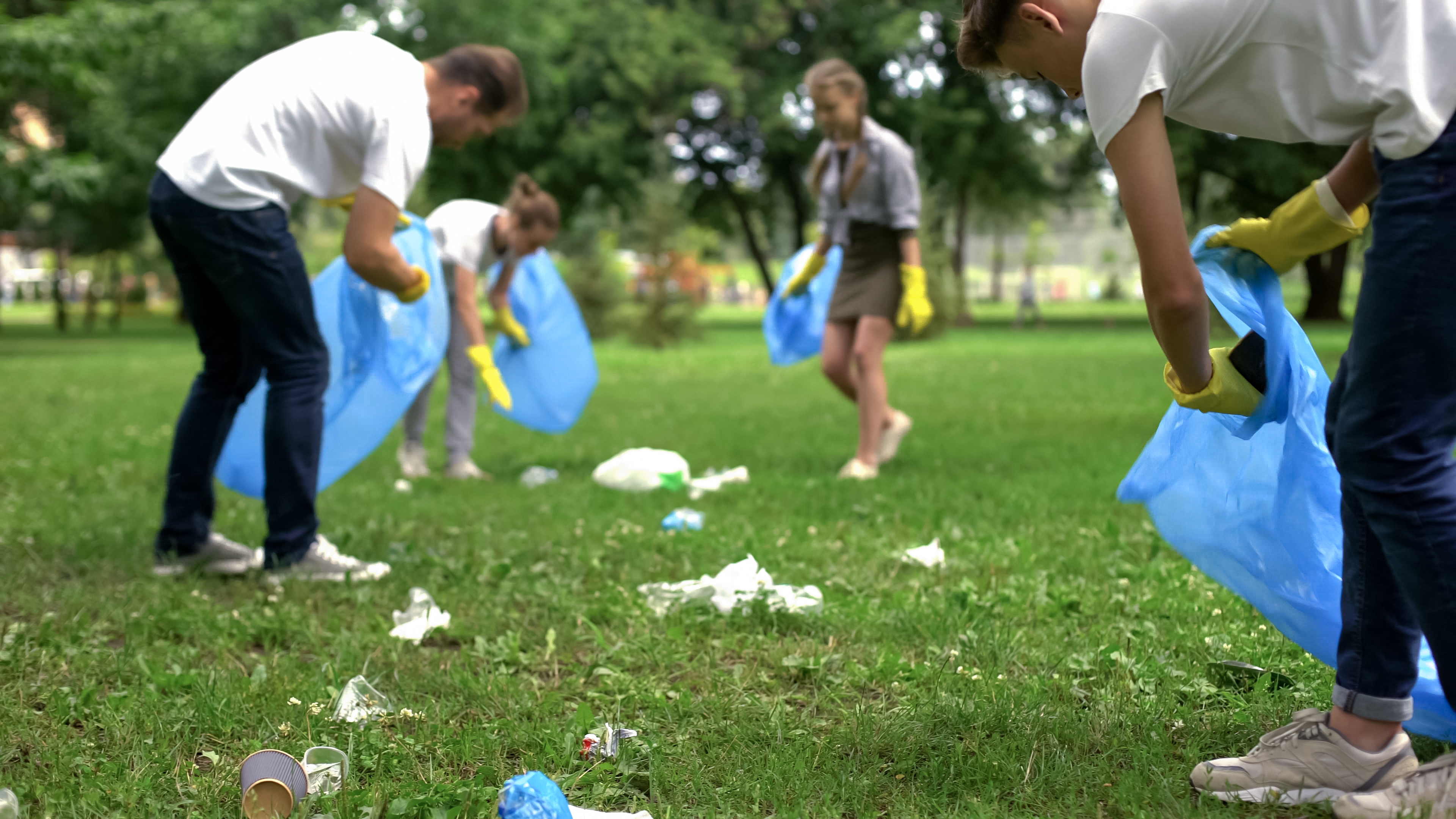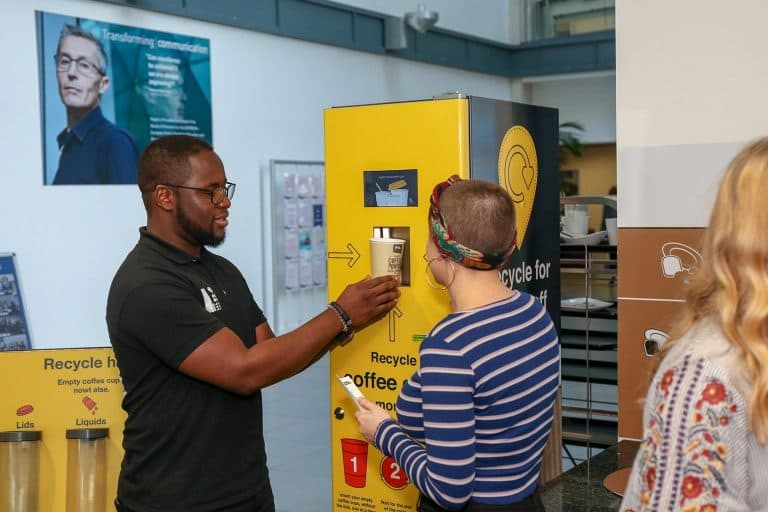We can’t really talk about rubbish, waste or pollution without mentioning plastic.
Governments, business, and people worldwide are coming to the realisation that plastic pollution is a vast and growing problem, which needs to be dealt with before the damage it’s causing to the environment goes too far. Production of disposable plastic products is rapidly increasing as the worlds population increases, which overwhelms the world’s ability to deal with them when they are finished with. The time has come to move past blaming the people that litter, and look upstream to where the root of the problem is, and stop it before it even begins.
Plastic waste often does not decompose and can last centuries in landfill, or else end up as litter in the natural environment, which in turn can pollute soils, rivers and oceans, and harm the creatures that inhabit them.
Thankfully in the UK, the government has started to take real and meaningful action on the problem of plastic, making strides towards reducing it.
In 2018 the UK signed a global commitment to eliminate plastic pollution. The Daily Mail, The Independent, and Business Green report 250 organisations including the UK government and many of the world’s largest packaging producers, retailers, recyclers and NGOs signed the Ellen MacArthur Foundation’s New Plastics Economy Global Commitment to eradicate plastic waste and pollution. Signatories included Danone, H&M, L’Oréal, Mars, PepsiCo, The Coca-Cola Company, Burberry plc, and Unilever.
Plastic waste is one of the greatest environmental challenges facing the world. It is a global problem requiring a global solution. That’s why the UK Government has brought together the Commonwealth Clean Oceans Alliance and Global Plastics Action Partnership

Goals include:
- Eliminate problematic or unnecessary plastic packaging and move from single-use to reuse packaging models;
- Innovate to ensure 100% of plastic packaging can be easily and safely reused, recycled, or composted by 2025;
- Circulate the plastic produced, by significantly increasing the amounts of plastics reused or recycled and made into new packaging or products.
The UK is making great steps to tackle the plastic that blights our streets, rivers and oceans – protecting wildlife from ingesting harmful plastic with our world-leading ban on microbeads in rinse-off personal care products, and introducing a highly successful plastic bag charge which has seen 13 billion plastic bags taken out of circulation in the last two years alone. The government has also announced plans to extend the plastic bag charge to all retailers, last week launched a consultation on banning the sale of straws, plastic-stemmed cotton buds and stirrers, and will consult on introducing a deposit return scheme for single use drink containers later this year.
The elimination of single-use plastic was very high on the agenda, here we break down the governments priorities:
It’s banning some single use plastics: cotton buds, plastic straws, and drinks stirrers
Following overwhelming public support, the environment secretary announced in May 2019 a ban on plastic straws, drinks stirrers, and cotton buds, to come into affect in October 2020. Over 80% of respondents backed the ban on the distribution and sale of plastic straws, 90% a ban on drinks stirrers, and 89% a ban on cotton buds.
Some people need straws for medical reasons, of which will still be able to use them, and catering establishments won’t be able to display them or give them out, but will be able to provide them on request.
The move comes after publishing the shocking estimated figures, that in England, it is estimated that annually we use 4.7 billion plastic straws, 316 million plastic stirrers and 1.8 billion plastic-stemmed cotton buds. Around 10% of cotton buds are flushed down toilets and can end up in waterways, beaches and oceans.
Rolling out the 5p carrier bag charge to all retailers
The government has already put a 5p plastic carrier bag charge in place in Englands ‘big 7’ supermarkets (Asda, Marks and Spencer, Morrisons, Sainsbury, The Co-operative Group, Tesco and Waitrose), which encourages people to bring their own reusable bags. But what about at the corner shops? The government has consulted on making smaller retailers in England like corner shops charge 5p for carrier bags to bring them in line with other countries in the UK.
The introduction of the 5p charge has seen a ginormous reduction of 90% in the use of plastic bags, which amounts to a staggering 9 billion carrier bags, even better still is that £66 million has been raised for good causes from the proceeds. New research shows the sale of 5p bags has continued to fall.
Tesco and Sainsbury’s have actually got rid of 5p bags altogether, so customers now only have the option of buying a 10p bag for life.
Every plastic bag not purchased is one which will not end up in our sea, damaging habitats or harming marine life. These figures demonstrate the collective impact we can make to help the environment by making simple changes to our daily routines.
The UK government banned microbeads in 2017

Microbeads are tiny little pieces of plastic that you can find in products like face and body washes, hand and body creams, body scrubs, and even toothpaste. These troublesome bits of plastic often end up in our oceans, causing real harm to wildlife and entering the food chain.
Johnson and Johnson and Neutrogena phased out microbeads by the end of 2017, as did Proctor and Gamble.
If you are buying something from overseas, It’s a good idea to be aware of whether or not it contains microbeads. Words like polyethylene, polypropylene and polymethylmethacrylate, or their abbreviations PET, PTFE, and PMMA all indicate plastic.
It’s urging supermarkets to set up plastic-free aisles

Part of the government’s 25-year plan, this initiative involves supermarkets setting up ‘zero waste’ aisles where all plastic packaging is eliminated, such as loose fruit and vegetables, or other produce. Customers are given the opportunity to do the right thing. Some stores encourage customers to bring their own reusable containers to buy for deli counter items, or fruit, veg, nuts etc.
Morrisons was the first UK supermarket to introduce plastic-free fruit and veg aisles. Customers can bag their produce in recyclable paper bags. The plastic-free aisles were rolled out to 60 stores and is estimated to save a whopping 156 tonnes of plastic each year! Customers still have the option of buying packaged fruit and veg.
Considering introducing a deposit return scheme for plastic bottles
UK consumers go through an estimated 14 billion plastic drinks bottles, 9 billion drinks cans and 5 billion glass bottles a year. As sad and shocking it is, over half of these end up in landfill or in our oceans. Although plastic bottles are fully recyclable, recent packaging recycling rates demonstrate that there are significant improvements to be made in drinks container recycling. Plastic bottles and other plastic packaging are the most frequently littered items that stain our environment.
To tackle the problem, the UK government has discussed the introduction of a deposit return scheme, where customers would get 5p back for every bottle they return to a retailer for recycling.
The aim of a DRS would be to reduce the amount of littering, boost recycling levels for relevant material, offer the enhanced possibility to collect high quality materials in greater quantities and promote recycling through clear labelling and consumer messaging. Additionally, introducing a DRS could help incentivise moves to push more material up the waste hierarchy and move towards a more circular economy.
As well as a deposit return scheme, the government has been looking at the idea of installing more water fountains across the UK, to encourage people to fill up their reusable bottles on the go, therefore reducing the amount of plastic water bottles purchased.
Possibly introducing a tax on disposable coffee cups
You’ve probably seen the headlines over the last few years about the ‘latte levy’ a 25p charge that the government is considering imposing on disposable coffee cups. Statistics show that about 5 billion disposable coffee cups are discarded as litter each year, and they are difficult and expensive to recycle because of the mixed materials they consist of, which have to be separated (coated in plastic to stop liquid leaking out). It’s predicted that the charge could reduce disposable coffee cup usage by 30% and raise almost £500 million.
Some of the big coffee chains have introduced incentives to encourage people to use reusable cups when they come into the store. Pret a Manger offers a generous 50p discount on hot drinks, and you can save 25p at Costa, and 25p at Starbucks.
Making packaging producers take more responsibility
In the UK it is estimated that five million tonnes of plastic is used every year, nearly half of which is packaging. The government’s 25-year environmental plan includes plans to urge companies to do more to reduce the impact of their products on the environment, make them easier to recycle, and foot more of the bill for recycling costs. It makes sense to stem the tide of plastic pollution by starting with the producers.
Most of the burden currently falls on taxpayers to fund plastic packaging recycling, but if the government pushes through its plans, producers will have to make packaging easier to recycle and pay a charge on packaging that is difficult to recycle.
Educating more young people about the environment

Our children are the potential, the future, the oncoming generation, so it is good to educate them on good habits at an early age, teaching them about the importance of looking after the planet as early as possible.
The government’s 25-year plan includes provision of £10 million in funding for school visits to raise awareness about the environment and to teach them more about the world they live in and why they need to protect it.
Funding research into alternatives to plastic
The government has made £7 billion available for the research and development of substitutes to plastic. We have become so dependant on plastics in our everyday life, banning them entirely might just prove too problematic. So the government is looking at if viable alternatives came onto the market, how this would work.
UK Government ambitions and targets
The UK Government made a strategic ambition to “…work towards all plastic packaging placed on the market being recyclable, reusable or compostable by 2025.” This is intended to support promises to leave the environment in a better condition for the future generations and, in particular:
- an “ambition” of zero avoidable waste by 2050
- a “target” of eliminating avoidable plastic waste by end of 2042.
Cleaning up the effects of littering costs local government millions of pounds every year, with costs also imposed on the tourism and fishing industries, and the effect of plastic pollution worrying 89% of people. It is estimated there are over 150 million tonnes of plastic pollution in the world’s oceans and every year one million birds and over 100,000 sea mammals sadly die from eating and getting tangled in plastic waste. A recent report estimates that plastic in the sea is set to treble by 2025.
The UK is a global leader in protecting our seas, oceans and marine life with the government regularly bringing in new environmental protection measures.
The government announced in 2018 they want businesses to continue to look at what they can do to help improve our environment to leave it in a better state than we found it. It is only by working together we will reverse the rising tide of plastic waste finding its way into our rivers, seas and oceans and the catastrophic impact this is having on our marine environment.
Need some help on getting started with recycling in your business? You’ve come to the right place. Read these helpful guides, browse our range, or contact us for help and guidance or more information on how you could be recycling more in your organisation, to help save our planet.
 Our reverse vending machines are a great way to encourage and incentivise recycling, and are popular for public areas such as cafes, motorway services, universities, train stations, as well as businesses to boost recycling rates.
Our reverse vending machines are a great way to encourage and incentivise recycling, and are popular for public areas such as cafes, motorway services, universities, train stations, as well as businesses to boost recycling rates.
We’re proud to have supplied the latest reverse vending pilot at King’s Cross Estate in central London. This program is a partnership between the UK’s leading recycling group, Veolia and restaurant chain, LEON. The scheme offers participants 10% off a purchase from the nearest LEON restaurant in return for recycling one plastic drinks bottle or aluminium can.
The scheme is backed by research from YouGov, proving that 81% of people would go out of their way to recycle in a reverse vending machine. The research also shows that 64% of people are primarily motivated to recycle because of an obligation to the environment.
Britain fails to recycle 40% of plastic bottles because they aren’t placed in the right bins – that’s over 240,000 tonnes of bottles not reaching recycling centres every year. This pilot has been designed around consumers to target the disposable drinks containers most commonly discarded on the go – bottles under 750ml as well as aluminium cans in order to make it easy for people to recycle, reduce littering and enable more materials to be salvaged.
We at Unisan are privileged to be included in yet another scheme directed at encouraging recycling and making it easy for the general public. We’ve proven that the introduction of reverse vending will result in a massive increase in a pure, uncontaminated waste stream, and ultimately a dramatic improvement in recycling rates, not only on the streets but at schools and universities or in an office environment!
We are also very proud to be part of the ground-breaking campaign, #LeedsByExample – the UK’s biggest push to date to trial innovative ways to improve rates of recycling on the go. Our CafeCrush reverse vending machines offer a  10p off discount at a participating trader in the campaign, and are placed at Leeds Kirkgate Market and Leeds Beckett University.
10p off discount at a participating trader in the campaign, and are placed at Leeds Kirkgate Market and Leeds Beckett University.
We at Unisan are proud to have a part in this ground-breaking campaign, supplying the leader of the campaign, Hubbub, with our CafeCrush Reverse Vending Machines. If you happen to be in Leeds over the next 6 months, look out for our machines at Leeds Kirkgate Market and Leeds Beckett University. These machines offer a 10p off discount at a participating trader in the campaign.
Recycling at home has improved over the years, but the rate of recycling on-the-go is still low. In the UK we get through 13 billion plastic bottles, 9 billion drinks cans and 2.5 billion coffee cups each year but only 42% of local authorities provide on-the-go recycling facilities1. A survey of visitors to Leeds city centre found that 52% of respondents had disposed of recyclable food and drinks packaging and the majority of this not recycled2.
#LeedsByExample has brought together a unique partnership of big businesses and local firms.
Another fantastic campaign Unisan are involved with is Hubbubs #drivedownlitter, watch our video here to see our reverse vending recycling machines explained!
